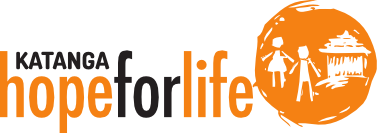Motives
Mark is a Co-founder and Trustee of Hope for Life Katanga. He works voluntarily for Hope for Life, alongside working for STOP THE TRAFFIK, an organisation committed to ending human trafficking and modern slavery through intelligence-led prevention.
After visiting and walking around Katanga for the past six years, it was becoming clear to see that poverty was a relationship of two things 1) A lack of opportunities and 2) the fear of not being able to provide for tomorrow.
My wife and I lived in a caravan for two years, partly because we found it hard to reconcile our experiences in Uganda and so felt guilty about our standard of living. We came to realise, however, that no matter how little money we earned, or how small our home or how simple our life was, we could never experience poverty because of the access we have to various ‘opportunities’ that we cannot escape from: I have been born into a society where I have access to free healthcare, education and the extensive resources of my family and friends, including those who are employers and have provided me with work from time to time. I have both plenty of opportunities and no fear for providing for tomorrow.
Back in 2013, I was chatting with a couple of interns that we had working with us in Uganda. They asked a question about my personal motives in supporting these families in Uganda. I responded along the lines of, “because the person that is struggling in Katanga could well have been me. It is not through effort but by chance, [perhaps you could say luck], that I was born in the UK, into a certain culture and wealth”.
I came to realise, I didn’t deserve the travel privileges of a UK passport, the freedom to eat what I want when I want, the reassurance of receiving free healthcare if I was ever hit with a severe illness or injury, or even to be born within a country, who could afford to provide this lifestyle because of our continued exploitation of countries and people around the world.
All I know is that at seven years old, instead of growing up running around the safe, green field out the back of my house, I could have been born Vincent in Katanga Slum, Uganda, growing up in a single roomed home, with an open sewage drainage channel, lying stagnant just a metre out my front door. If I was born into a society, where for generations my family have struggled to escape poverty because of a lack opportunities, I would want someone to give me a helping hand, providing the opportunity to education and a better life.
Or how about Fatima, who was struggling to look after her own children before being forced to take on her sister’s children. After being given the opportunity of vocational training and being given a loan, she learned to tailor, bought a sewing machine and expanded her electrical business, designing and making clothes for others and herself.
Or Jaja (grandma) Philidausi, who when her home burnt down and she lost all her possessions, instead of being left without any support, Hope for Life stepped into provide new furniture, school uniform for the children and a grant to set back up the business she lost.
These are all people, people who could have been me. I can’t stand here and do nothing*.
*In future posts, we’ll discuss how good intensions are not enough, how helping can negatively impact the very communities we desire to contribute too. First though, we need to recognise that we are where we are by luck, through no fault or merit of our own. For those who still think you have earned your life, we will be thinking about an argument by economist and political philosopher, John Rawls, specifically his work on ‘A Theory of Justice’.







